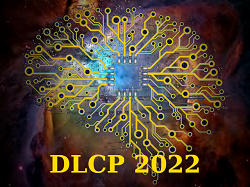Speaker
Description
The Jiangmen Underground Neutrino Observatory (JUNO) is a neutrino experiment under construction with a broad physics program. The main goals of JUNO are the determination of the neutrino mass ordering and the high precision measurement of neutrino oscillation properties. High quality reconstruction of reactor neutrino energy is crucial for the success of the experiment.
The JUNO detector is equipped with a huge number of photomultiplier tubes (PMTs) of two types: 17 612 20-inch PMTs and 25 600 3-inch PMTs. The detector is designed to provide an energy resolution of 3% at 1 MeV. Compared to traditional reconstruction methods, Machine Learning (ML) is significantly faster for the detector with so many PMTs.
In this work we studied ML approaches for energy reconstruction from the signal gathered by the PMT array and presented fast models using aggregated features: fully connected deep neural network and boosted decision trees. The dataset for training and testing is generated with full simulation using the official JUNO software.
| Agreement to place | Participants agree to post their abstracts and presentations online at the workshop website. All materials will be placed in the form in which they were provided by the authors |
|---|

